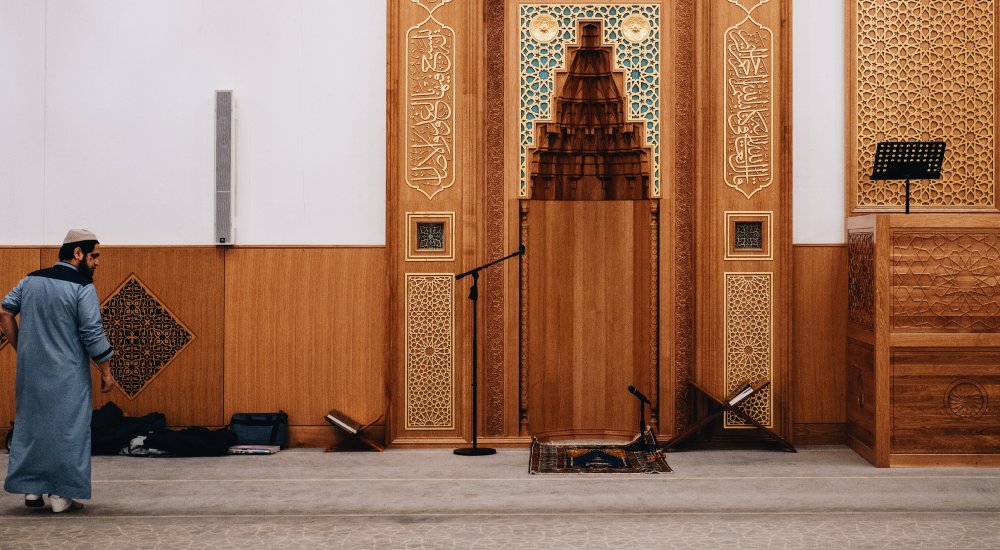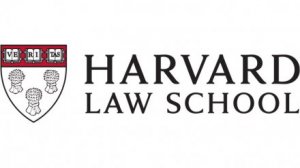Harvard Law School Islamic Legal Studies Program Visiting Fellowships
"Law and Social Change"

The Program on Law and Society Visiting Fellowship Program provides opportunities for outstanding scholars and legal practitioners to undertake research, writing, and scholarly engagement on law and society in Muslim majority and minority contexts. We are particularly interested in applicants whose work focuses on constitutional law, human rights, women’s rights, children’s rights, minority rights, animal welfare and rights, food law, environmental law and climate change, migration and refugee studies, LGBTQ issues, and related areas.
We welcome applications by scholars who have completed an advanced degree (e.g., PhD, SJD, JD, LLM, or other comparable degree) and have an established academic record, as well as experienced and accomplished practicing lawyers who aim to draw upon their legal experience in their Fellowship project. Fellows may spend from one month up to one academic year (excluding June-August) in residence at Harvard Law School working on an independent project. We seek applicants from a diverse range of backgrounds, disciplines, academic traditions, and scholarly interests.
How to Apply
To apply for a Visiting Fellowship for 2024–2025, please submit the following materials via the online application form:
- a curriculum vitae
- a recent publication or a writing sample (approximately 25 pages in length). All publications or writing samples should be in English.
- a research statement, not to exceed 1000 words, that: 1) describes the proposed work during the fellowship period. The proposal should outline a specific research project that can be accomplished during the Fellow’s residence at Harvard Law School; and 2) sets forth a specific work output for the completed project (e.g., book, article, database/website entries).
- Two recommendation letters, submitted directly from your referees via our online portal. The application form includes a separate link for you to provide your referees. If more than two letters are sent, there is no guarantee that all letters will be read.
- Disclosure of background information: candidates are required to disclose all criminal offenses and administrative, professional, academic violations at the time of application by answering the questions on the application form. If any of the answers change after the candidate has submitted their application, they must update the Program as soon as possible.
Application Deadline
All applications must be received no later than February 15, 2024 via our online application form. Letters of recommendation should be sent directly from the referee to the Program via the online system. Late applications will not be considered. Applicants may expect emailed notification of Fellowship decisions by mid to late March.
Please note: When you access the application form, you should be ready to enter all request information and to upload all supporting documents (CV, research proposal, and publication/writing sample), as the form cannot be saved.
Additional Information
Funding and Facilities
Fellows will receive a stipend of up to $5,000 per month. PLSMW will pay the monthly Law School appointment fee for the duration of a Fellow’s stay at the Program, which will ensure, among other things, library access to all Harvard University libraries, access to University recreational facilities (for an additional fee), an email account at the Law School, membership in the Faculty Club, and free admission to University museums. Visiting Fellows will receive an office at PLSMW or in the Harvard Law Library.
Terms of Appointment
Fellowship terms are variable, from a minimum of one month to a maximum of one year. We do not accept visitors during the summer months of June, July, and August.
Residence Requirements
With exceptions for a limited amount of personal and professional travel, Visiting Fellows are expected to be in residence at PLSMW throughout the term of their appointment in order to foster an intellectual community, share ideas, and contribute to Program projects and events.
Concurrent Appointments
Visiting Fellows must consult with the Program before accepting any additional concurrent academic or research fellowship, appointment, or affiliation during the term of their Visiting Fellowship.
Housing
PLSMW does not provide housing. No housing should be expected in University apartments or dormitory rooms. Accepted fellows are encouraged to seek outside housing several months before arriving in Cambridge, preferably in person. There is information on housing on the Harvard International Office website.
Health Insurance
All visiting fellows must show proof of having adequate health insurance. Those who do not already possess such insurance can access information on obtaining Harvard Affiliate Health Insurance at the Harvard University Health Services website. A less expensive plan, available by the month, has been negotiated by Harvard’s International Office for international scholars.
Courses
Visiting Fellows may audit one course in any unit at Harvard University on a non-credit basis per semester, with permission of the instructor. There is no tuition charge for auditing courses. Visiting Fellows do not have faculty status. Appointment as a Visiting Fellow does not entitle the individual to participation in any Harvard degree program.
Faculty Club
Fellows are allowed access to the Harvard Faculty Club. The Club serves breakfast, lunch, and dinner Monday through Friday.
Activities
Fellows may take advantage of a wealth of cultural and academic extra-curricular offerings available to the Harvard community on a daily basis. Visiting fellows should come prepared to share their professional experience and expertise and will have opportunities to meet other scholars through functions organized by numerous groups and programs at Harvard Law School and other parts of the University.
For any questions or for further information, please contact plsmw@law.harvard.edu.

